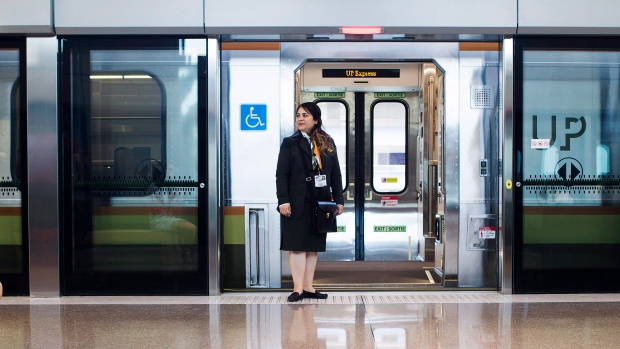May 17, 2016
Union Pearson Express to require indefinite subsidy despite tripling traffic: Metrolinx CEO
By Paige Ellis

Ridership on Toronto’s Union Pearson Express has tripled since the service slashed fares earlier this year, according to the head of the province’s transit agency.
But with ticket revenue now lower, Bruce McCuaig, president and CEO of Metrolinx, says the UPX will require a taxpayer subsidy of an unknown amount for an indefinite period of time.
“We’ve really decided that right now, instead of trying to break even on the operating side, our focus is to build the ridership,” McCuaig told BNN in an interview.
Metrolinx reduced one-way fares for the UPX, which connects Pearson International Airport to Toronto’s downtown core, from $27.50 to $12 on March 9. Fares are lower if travelers use a Presto card.
Under the original fare structure, fewer than 2,200 people used the service on an average per day, filling one out of every 10 seats.
“People loved the service who were using it,” noted McCuaig. “But we needed to get more people on it. So that really precipitated us to lower the fare.”
Back when one-way tickets were $27.50, Metrolinx projected the UPX would break even on operating costs within three to five years as ridership grew.
With lower fares, McCuaig said that’s no longer the target.
“We felt [the lower revenue] was a short-term investment, because the more people we could get to try the service, we can keep them as customers.”
Asked how much of an operating subsidy will be required and for how long, McCuaig said it depends on Metrolinx’s success attracting riders.
He pointed out the two other main transit services in the region, GO Transit and the Toronto Transit Commission, both require taxpayer subsidies.


